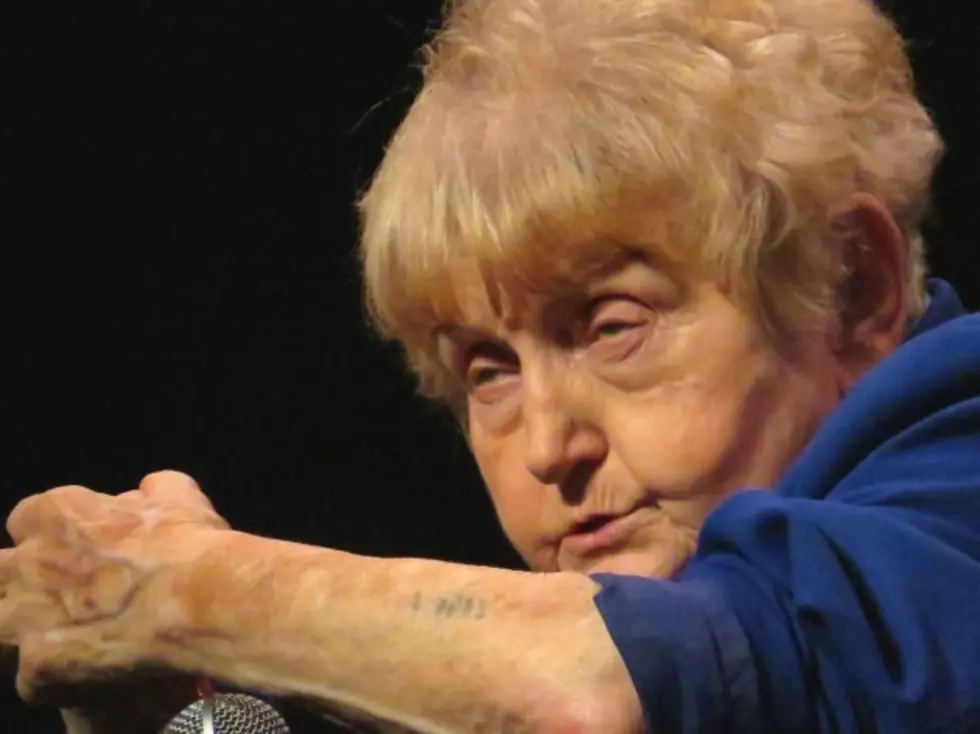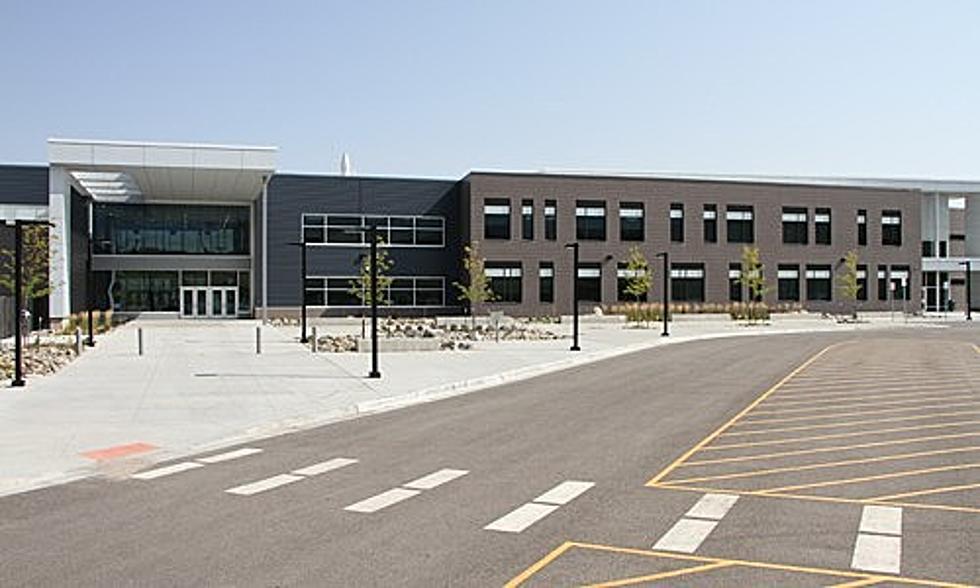
Romanian Girl Survives Auschwitz, Learns Forgiveness
Eva Kor and a hundred others stood sleepless for four days while riding a cattle car through eastern Europe in the spring of 1944.
When the train stopped, 10-year-old Eva found a crack in the wall, peeked through and still couldn't figure out where she was, she told an assembly at Natrona County High School on Tuesday.
The girl from a small village in Romania was about to endure horrors that taught her lifelong lessons of survival and even more powerful lessons of forgiveness.
The doors to the cattle cars opened.
Eva, her twin sister Miriam, parents and other family members were hustled to an 85-foot by 35-foot concrete slab known as the "selection platform," Kor said.
That platform served as the entrance to the Auschwitz (the Germanic word for the nearby town of Oswiecim, in occupied Poland) concentration camp where hundreds of thousands of families were torn apart and killed by the Nazis from 1940 to 1945.
A guard looked at her and Miriam, and asked her mother if they were twins. After her mother said yes, guards set the twins aside and hauled the rest of her family to their deaths.
Eva and her sister received identifying tattoos on their left arms and spent much of the next year surviving the examinations and experiments of Dr. Joseph Mengele.
Corpses of children lay in the latrines. Rats ran along the floors of her barracks.
Natrona County High School freshman Tresa Dilts asked how Kor survived.
Kor cited her father as an inspiration. He never forgave her because he wanted a boy.
"I learned to outsmart and defy him; so when I got to Auschwitz I had four years experience in defying authority," Kor said. "I was not going to let the Nazis win."
That didn't make the fight any easier.
The day began at 5 a.m.
Roll call began outside at 6 a.m. regardless of the weather and regardless of what they wore.
After a breakfast of something she couldn't stand to eat, she and other twins would endure 8-hour sessions of standing naked in a room while Mengele or his assistants would measure every aspect of their bodies. Their measurements were compared with their twins and other children.
"The only way to cope was to block it out of my mind," Kor said.
One time, the medical personnel took her sister, stretched up her arms, drew blood from one arm and gave her multiple injections in the other arm. Those actions would later affect her sister's pregnancies, and contribute to the cancer that would cause her death in 1993, she said.
In December 1944, Allied air raids became more frequent. The experiments stopped.
In early January 1945, 70 years ago to this day, the guards ordered the prisoners to pack their clothes and go to Germany. Eva and Miriam realized this would be a death march, so they hid in their barracks.
The next day, the Nazis were gone. They returned a few days later with machine guns to kill the remaining prisoners. They also brought explosives to blow up the gas chambers and crematoriums.
She and Miriam survived that, too.
Later that month, a Ukrainian division of the Soviet army liberated the camp.
After the war, she returned to her home in her little village in Romania. Its yard was overgrown, its interior ransacked. She found scraps of a few photos.
Romanian life under communism was terrible, too, with day-long bread lines, confiscation of food, and the disappearances of people, especially Jews who were blamed for the war, she said.
After a two-year wait, she and her sister with the help of a friend were able to obtain visas to Israel. When she arrived she said, "for the first time since I was 6, I slept without fear of persecution."
She rose through the ranks of the Israeli army, and by way of marriage moved to Terre Haute, Ind.
Through all that she regarded herself as a victim, which was understandable because of the horrors of the Holocaust.
But a couple of events changed that perception of herself, she said.
She was crushed because she could not travel to Israel for the funeral of her sister.
And through a documentary filmed in Germany of her as a survivor of the experiments in Auschwitz, she met one of the few doctors in the camp who showed compassion to the prisoners.
After returning to Terre Haute, she spent hours in a store trying to find a "thank you" card to send the doctor. She spent 10 months thinking about writing a letter to say she forgave him, and spent another four months writing it.
"It was an act of self-liberation," she said.
The transition from victim to forgiver astonishes some people, who wonder how she can forgive people who would never repent of their crimes, she said.
But Mengele, Adolf Hitler, Heinrich Himmler and the rest who drove the Third Reich and the Holocaust can't have power over her memories and life if she doesn't let them, she has responded.
Forgiving does not mean forgetting, however, she said before her talk to the students. Instead of the cliche "forgive and forget," she uses "forgive and heal."
Forgiveness costs nothing, and it doesn't require any action by those who wronged you, she said.
"Anger is a seed of war," she said. "Forgiveness is a seed of peace."
More From K2 Radio









